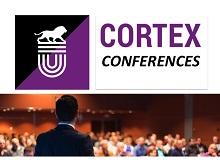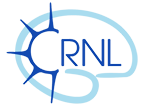Seongmin Park, University of California, Davis
Labex Cortex

In everyday decision making, we need to make a decision that we never made before. For example, how can we select a better future collaborator without experience? Humans are adept at generalizing previous experiences to find solutions to distinct-yet-related novel problems and/or to make flexible decisions according to changing goals or internal motivations. This behavioral flexibility is a hallmark of human intelligence while it is often severely impaired in patients with psychological and mental disorders and remains a key challenge for most artificial intelligence systems. Computational models have suggested that the ability to organize the relationships between entities (e.g., places, objects, people, events, or abstract task states) into a structural representation called the ‘cognitive map’ is critical to afford generalization and flexible decision making. The idea of the cognitive map is supported by findings of spatially tuned neurons in the hippocampus (HC) and entorhinal cortex (EC) system in animals while freely navigating physical spaces. However, it remains unclear how the brain abstracts everyday experiences into representations of low-dimensional structure indicating relationships between entities in non-spatial conceptual spaces, and how the brain uses this internal model of the world to make novel inferences and flexible decision making. By combining neuroimaging and computational models, I found the architecture of the cognitive map in the brain and revealed neural mechanisms to generalize structural knowledge learned from a previous task to find solutions to novel problems. Together with recent findings, my findings suggest that by having the cognitive map, our brain can infer the unlearned relationships, plan decisions to pursue a long-term goal, and choose the best alternative if the current option is not available, as if we can find a route between places with a map in a physical space. In the proposed projects, I will examine how the HC-EC system and the prefrontal cortex (PFC) interact to achieve learning the complex hidden task structure, efficient problem-solving, and planning in changing environments. Learning and representing structural relationships and model-based decision making have been examined in separate domains of cognitive neuroscience. I aim to address to fundamental questions of which neural representations and computational mechanisms can unite two seemingly distinct cognitive functions and afford behavioral flexibility.
Inscription gratuite et obligatoire sur https://evento.renater.fr/survey/chair-of-excellence-seminars-78i5ykb0
CRNL - CH Le Vinatier - Bâtiment 462 Neurocampus Michel Jouvet - Amphithéâtre Neurocampus, 95 Boulevard Pinel, Bron











